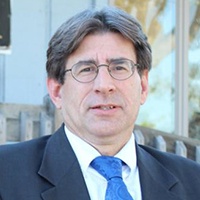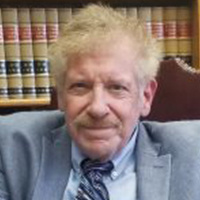Okemos White Collar Crime Lawyer, Michigan
Sponsored Law Firm
-
 x
x

Click For More Info:
-
Goldman & Associates
615 Griswold St. Suite 1325 Detroit, MI 48226» view mapCriminal Over 30 Years Experience.
Accessibility, responsiveness, and personal commitment is our approach to client representation.
800-797-8031
Not enough matches for Okemos White Collar Crime lawyer.
Below are all Okemos Criminal lawyers.
Donald J. Baranski
✓ VERIFIEDDivorce & Family Law, Estate, Employment, Criminal, Consumer Bankruptcy
Thirty years in general practice
Donald J. Baranski received his Bachelor of Arts in Humanities Pre Law, from Michigan State University. This was a triple major of American History, P... (more)
Richard L. Williams
✓ VERIFIEDCriminal, Traffic
Attorney Richard L. Williams provides legal services for driver’s license restoration, expungement of criminal records, domestic assault, civil infr... (more)
Kit Sheintoch
Real Estate, Litigation, Divorce & Family Law, Criminal, Slip & Fall Accident
Status: In Good Standing
Sarah Anne Williams
Criminal, Banking & Finance, Bankruptcy & Debt
Status: In Good Standing Licensed: 15 Years
Jeffrey J. Butler
Election & Political, Natural Resources, Employee Rights, Banking & Finance, White Collar Crime
Status: In Good Standing Licensed: 33 Years
Robert L. Baldori
Divorce & Family Law, White Collar Crime, Criminal
Status: In Good Standing Licensed: 37 Years
Asja Leigh Jackson
Administrative Law, Real Estate, Criminal, Consumer Bankruptcy
Status: In Good Standing Licensed: 2 Years
Anita B. Folino
Landlord-Tenant, Lawsuit, Employee Rights, DUI-DWI
Status: In Good Standing Licensed: 45 Years
 Akiva Goldman Detroit, MI
Akiva Goldman Detroit, MI AboutGoldman & Associates
AboutGoldman & Associates Practice AreasExpertise
Practice AreasExpertise


